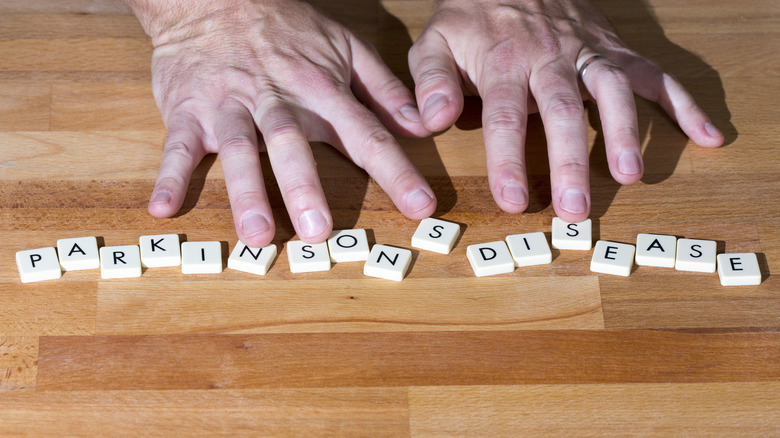Is There A Cure For Parkinson's Disease?
Aging affects the body in a number of ways. Some of them are unavoidable while others are the result of conditions and diseases that affect only a portion of the population. These conditions aren't always visible. For better or worse, Parkinson's is not among them.
The disease is described by Harvard Health Publishing as a progressive condition that weakens or kills neurons in the area of the brain that controls movement. As the Mayo Clinic adds, this is largely due to the brain's reduced ability to produce dopamine. A low level of dopamine causes the trembling that Parkinson's is best known for. It is not the only symptom, however. Parkinson's can also affect facial movement and a person's walking gait as well as the swing of their arms, and ruin their posture.
Not every patient experiences every symptom. But whatever symptoms present will invariably worsen as the disease progresses. The inevitability of progression leaves patients and their loved ones wondering if there might be a cure that stops Parkinson's in its tracks.
There is no known cure
There are many medications on the market for people with Parkinson's disease. Unfortunately, a cure is not one of them. As the United Kingdom's NHS highlights on their page, there is currently no known cure for Parkinson's. There is some hope, however. The U.S. National Library of Medicine's clinical trials page lists over 3,000 tests and trials. Most are not focused on a cure, but there is no telling which branch of research may lead to a breakthrough.
Parkinson's patients may not have access to a cure, but they do have access to a range of treatment options. The Parkinson's Foundation explains that there is no single treatment plan, because each patient has unique needs that their treatment must address. Patients may be advised to try lifestyle changes, prescription or over-the-counter medication, physical therapy, or possibly medical marijuana. Each treatment option is intended to improve the patient's life and reduce the severity of their symptoms, offering the best possible relief from Parkinson's until a cure can be found.


